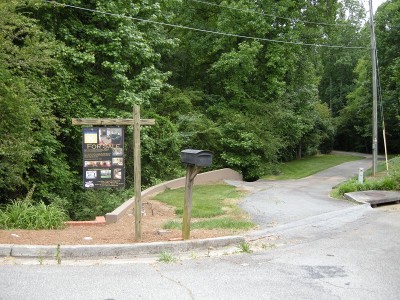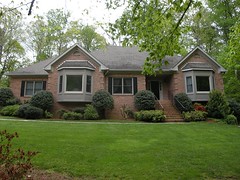I can almost hear you say, “Pricing isn’t about price? Then what the heck is it about?”
Here is the bottom line. Just about every home on the market has a narrow range it WILL sell in. Whether it is priced at $50,000 or $500,000, there is a price at which it will sell. Below that price and we tend to see multiple offers. Above that price and we tend to see reducred activity.
Obviously marketing and presentation come in to play… if nobody knows it is there, or when they come to see it the home lacks attraction, then the price ceases to be the major factor. But it still comes back to price.
First, I’ll give you a chance to review… Price ≠ Value
Next, let’s discuss ways to NOT price a property…
- What someone owes on the property has absolutely no bearing on the value of the property.
- What someone paid for the property has no bearing on the value of the property.
- How much money someone needs in order to move has no bearing on the value of the property.
Each of those are external. Back when the market was hot, I didn’t hear people saying that they owed $147,615 on their property and so that was what it needed to sell for… and I never heard them saying that they only paid $200,000 for a property and so that was all they needed to sell it for… even if the other houses around them were selling for $400,000. It was all about how much other properties were selling for.
The situation is a little different today… Sellers are doing the math on what they paid or what they owe. I understand… I can’t afford to sell my house either… and partially because of that (and mostly because we love where we live) we aren’t looking for homes.
So, how DO we price a property?
Pricing is a strategy. Obviously it has a little bearing on the final sales price… but not as much as most people (including many real estate agents) assume. If it is priced too low, it will attract bidding. If it is priced too high, it will attract nothing.
So, if we use pricing as a strategy, what are we trying to accomplish? Well, there are two different options… and neither of them ends in $___,900.
Strategy #1 – We want to get the house in front of the right people! For most homes, this is the right strategy. When consumers search, they tend to use predictable patterns. At the low end of the spectrum, they use $10,000 increments. The search might be $80,000 to $100,000. As we move up in price, we quickly start to see $25,000 increments, with searches like $250,000 to $275,000. Then we will see $50,000 and finally $100,000 increments.
Of course there will be people searching for slightly different end points, but this is the way most searches go. Real estate agents tend to play with the end points a little, but consumers don’t play as much. So…
Use round numbers that correspond to the searches at your price level and price on a “node.” So, instead of $99,000, price at $100,000. Instead of $251,000, price at $250,000. The reason to price on a node is that you can catch searches in two places… $200,000 to $250,000 AND $250,000 to $300,000. Pricing at $249,900 drops you out of one of those searches.
Look realistically at the market and at the prices the specific property can compete in. Get it in those searches. That might mean that you add that the seller is negotiable if you are a little higher than you should be ($96,000 home in a $100,000 search range), or it might mean that you have to hold the line on negotiations ($213,000 home in a $200,000 search range). If buyers see a price that is WAY too high, they won’t bother look…
Strategy #2 – Use a “precise” number for pricing. I think this is more appropriate for a seller’s market, but there is some data that suggests that (what I call) random number pricing, is better for holding list price and selling price in a tighter range. By that I mean that instead of listing at $100,000, one might list at $97,372 or $103,826. Consumers percieve these prices to be “real” as opposed to $99,900… which they think of and refer to as $100,000, anyway.
In this case, we need to be VERY realistic in the value of the property. We can’t price in a lot of “wiggle room” or fluff because it will not be searched by as many buyers as a property priced on a node. And honestly, I can’t vouch for the data, but I can understand the logic. I think that it is best reserved for properties that fall too far from a node to effectively use that for pricing.
Bonus Strategy – Good Luck with Crazy 8s. In China, the number 8 is seen as good luck. This also holds for other cultures in the area. I had a property that wasn’t getting any love at $185,000, but got two offers at $188,888… I have seen research that in some markets this can be an effective way to round out the price.
What is clear is that pricing ending in $900 doesn’t really work. Sure, we see it at the grocery store and every other place we shop, and there is a psycologocal reasoning behind it… but it doesn’t carry to real estate. Especially at the top end. There is simply NO way that a buyer for a house at $1,999,999 isn’t going to think in terms of $2,000,000 as the price for the property… and neither are they going to look at two properties, one priced at $1,999,900 and the other priced at $2,000,000 and think one is cheaper… Even a $10,000 difference at that point is mute.
Bottom line
Pricing is a strategy, and isn’t really about price… it is about WHO will see a property. What picking a price, the goal is to get the property in front of people that will like it AND have the capacity to buy it.


![Reblog this post [with Zemanta]](http://img.zemanta.com/reblog_b.png?x-id=a102ad7d-f179-4bb6-b04a-7e32c84a3564)

![Reblog this post [with Zemanta]](http://img.zemanta.com/reblog_b.png?x-id=47369349-17ee-4fa6-b142-79f6999f0a11)

![Reblog this post [with Zemanta]](http://img.zemanta.com/reblog_b.png?x-id=7c20288e-3be2-4505-9d0f-17ced76f525f)

![Reblog this post [with Zemanta]](http://img.zemanta.com/reblog_b.png?x-id=969526f5-e25b-490d-904d-a74baac8f4d5)

![Reblog this post [with Zemanta]](http://img.zemanta.com/reblog_b.png?x-id=749acf2b-e10a-4838-aa2b-68c8417ad4e8)